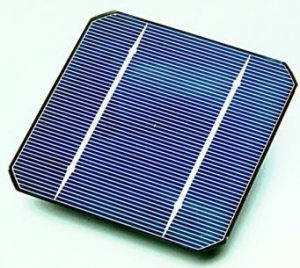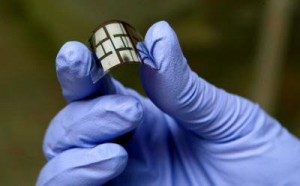While we normally associate wrinkles with aging, nature likes to add wrinkles to surfaces improve efficiency. The wrinkles of the brain increase surface area and therefore processing capability. The friction ridges on our fingertips allow for fine texture perception. Most importantly for the context of this article, nature produces wrinkles in leaves to improve the capture of energy from light.
Taking this cue, researchers from Princeton and the University of Pennsylvania decided to try the same with photovoltaics, which have so far been rather remarkably flat:
To get the necessary flexibility, they are using plastic solar cells, which have so far been far less efficient than the rigid crystalline silicon photovoltaics. The result? Well, according to this article in Nature Photonics, they extended the wavelength range for solar energy conversion by 200 nanometers, and an efficiency increase of 600% in the near-infrared. The benefit is mainly through the use of a wider range of the spectrum.
The increase in efficiency over previous polymer photovoltaics is over 40%, which still puts them short of the efficiency of crystalline silicon solar cells. However, the potential applications of this flexible variety is broader, as they can be more easily integrated into a wide range of devices and structures without standing out. It seems reasonable to believe that, in the future, buildings will have solar cells more thoroughly integrated in their construction, and not just perched at the top.


